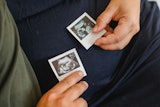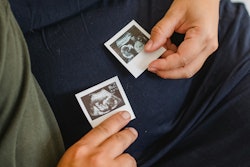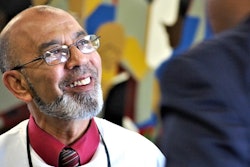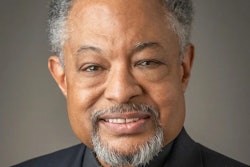There’s consensus among political experts that the location, moderator and audience at last week’s Democratic presidential debate, held at Howard University, forced candidates to discuss solutions to issues concerning Blacks and other minority voters. A second forum for candidates seeking the Republican presidential nomination will be broadcast by PBS in September from another historically Black campus, Morgan State University in Baltimore.
“Context shapes content,” says Georgetown University professor and author Dr. Michael Eric Dyson. “The audience made the candidates focus on questions they may not have been asked in the broader society.”
Inside Howard’s 1,500-seat Crampton Auditorium, the candidates faced an audience that lives and breathes in the country’s political backyard. Tickets to the event were equally divided among members of the Howard community, friends of host Tavis Smiley and PBS, and the candidates own supporters.
It was PBS talk show host and author Smiley’s idea to host the two “All-American Presidential Forums” – the first at Howard and second at Morgan State. Smiley said in a CSPAN interview that his biggest challenge was convincing PBS that the forums would be worthwhile. Smiley has said his goal was to “provide an unprecedented level of inclusion” in the discussion of issues affecting the country’s future.
“Tavis structured it so that it was linked to a set of issues in his work, the Covenant,” says Dr. Ronald Walters, director of the African American Leadership Institute at the University of Maryland. The Covenant With Black America, a New York Times bestseller, identifies public policy issues important to African-Americans.
“There were no ‘gimme’ questions, like ‘What are you going to do with Bill Clinton,’” Walters says. “The questions focused on public policy.”
Massachusetts’ first minority governor, Deval Patrick, introduced the eight Democratic candidates” Joe Biden, Hillary Clinton, Christopher Dodd, John Edwards, Mike Gravel, Dennis Kucinich, Barack Obama and Bill Richardson.
The forum, scheduled more than four months ago, took place on the day the U.S. Supreme Court ruled 5-4 against allowing two major public school districts to consider race in their plans to diversify their student bodies.
Walters and other experts said the Court’s decision reminded the candidates and the audience of what may be at stake during this election.
Democratic strategist Donna Brazile said the ruling should be a wake up call to all voters.
“When they wake up tomorrow morning and see what they have done to Brown v. Board of Education, people will see that elections do matter,” she said.
Candidates spent much of their time discussing their preferred education policies, including reforming or repealing the No Child Left Behind Act, establishing universal kindergarten, funding primary and college education and ensuring that minorities who earn degrees have a fair chance in the work place.
“It was wonderful and refreshing to hear education made a central issue,” Dyson said.
Michel Martin of National Public Radio, Ruben Navarrette Jr. of The Washington Post Writers Group and DeWayne Wickham of USA Today took turns questioning the candidates on their plans for ending racial discrimination, poverty, unemployment and persistent health disparities.
Immediately after the forum, Frank Luntz, a pollster and political consultant to Republican candidates who specializes in testing language that helps turn public opinion on an issue or candidate, asked a separate panel of 30 viewers their thoughts on who won the debate. Luntz was to give his analysis of their comments last Friday on Smiley’s show.
“Voters of color are the hot Democratic demographic group of 2008,” Luntz said in a statement. “Now for the for the first time, they’ll have a voice at the table. Our instant response session will not only react to what the candidates say, but they’ll pick winners and losers.”
Ann-Marie Adams, a Howard student working on a doctorate in history, said the debate energized her as a voter.
“This is the first time I heard any presidential debate in which the candidates spoke about issues that deeply affect people of color,” she says. “I am now more interested in the election than I have ever been.”
–Cassie M. Chew
There are currently 0 comments on this story.
Click here to post a comment.
© Copyright 2005 by DiverseEducation.com





















